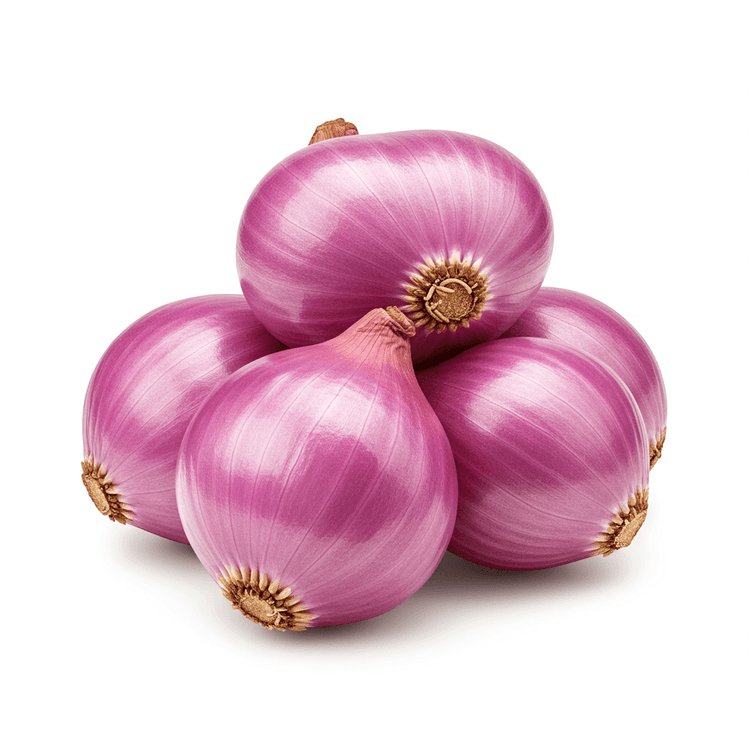
Shallot
Shallots are small, elongated bulbs with a mild, sweet, and slightly garlicky flavor, making them a versatile ingredient in cooking. Their texture is crisp when raw and softens to a delicate, creamy consistency when cooked. Shallots have a reddish-brown papery skin and are often prized for their ability to enhance dishes without overpowering other flavors. They are a staple in French cuisine and are commonly used in dressings, sauces, and sautés, offering a subtle yet complex taste profile that appeals to both home cooks and professional chefs.
Common Uses
- Add finely minced shallots to vinaigrettes for a mild, aromatic flavor that complements salads and roasted vegetables.
- Sauté shallots in butter or olive oil as a base for soups, stews, and risottos to create a rich, savory depth.
- Roast whole shallots alongside meats or vegetables to bring out their natural sweetness and caramelized texture.
- Use shallots in stir-fries or Asian-inspired dishes for a subtle onion-garlic flavor that enhances the overall taste.
- Incorporate shallots into creamy sauces, such as béarnaise or mushroom sauce, to elevate the dish with a sophisticated flavor.
- Pickle thinly sliced shallots for a tangy, crunchy garnish that pairs well with tacos, sandwiches, or charcuterie boards.
Nutrition (per serving)
Nutrition (per serving)
Calories
72.0kcal (3.6%)
Protein
2.5g (5%)
Carbs
16.8g (6.11%)
Sugars
7.9g (15.8%)
Healthy Fat
0.1g
Unhealthy Fat
0.0g
% Daily Value based on a 2000 calorie diet
Nutrition (per serving)
Calories
72.0kcal (3.6%)
Protein
2.5g (5%)
Carbs
16.8g (6.11%)
Sugars
7.9g (15.8%)
Healthy Fat
0.1g
Unhealthy Fat
0.0g
% Daily Value based on a 2000 calorie diet
Health Benefits
- Rich in antioxidants, which can support overall health and wellness.
- Contains vitamins and minerals like vitamin C, vitamin B6, and manganese, making it a nutrient-dense addition to meals.
- Adds a mild, sweet onion-like flavor to dishes, enhancing taste without overpowering other ingredients.
- Low in calories and fat, making it a great choice for weight-conscious meal planning.
- Commonly used in salad dressings, sauces, and sautés for its delicate and versatile flavor profile.
Chefadora AI is here.
Experience smarter, stress-free cooking.
Storage Tips
Store shallots in a cool, dark, and well-ventilated place, such as a pantry or cupboard, to maintain their freshness and flavor. Avoid storing them in plastic bags, as this can trap moisture and lead to spoilage. If peeled or chopped, keep them in an airtight container in the refrigerator and use them within a few days. For long-term storage, you can freeze chopped shallots in a freezer-safe bag or container.
Marnirni-apinthi Building, Lot Fourteen,
North Terrace, Adelaide, South Australia, 5000
Australia


